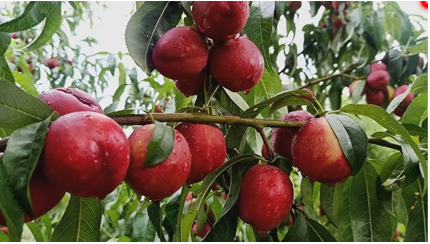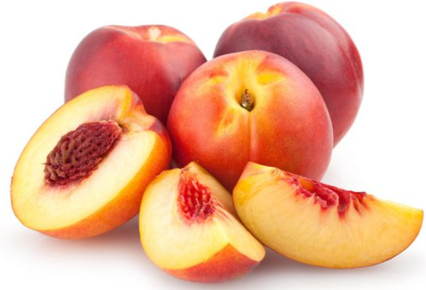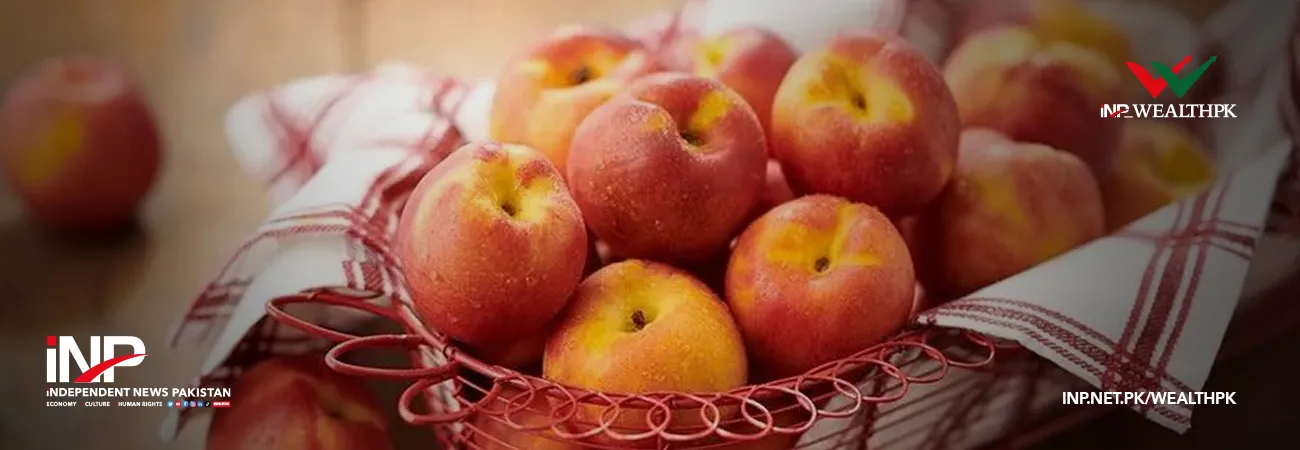INP-WealthPk
Azeem Ahmed Khan
Nectarine cultivation is taking root across Punjab, offering a profitable new fruit crop for local farmers and attracting increasing consumer interest, Muhammad Aqeel Feroze, Senior Scientist at the Barani Agricultural Research Institute (BARI), Chakwal, told WealthPK.

Imported from Italy in 2016 under a high-value fruit initiative, nectarines are now thriving in the region, particularly in the Potohar Plateau and even the arid zones of southern Punjab. The fruit is getting popular for its yield and market appeal. This fruit, which looks like an apple but tastes like a mix of plum and peach, can be successfully grown throughout Punjab, Aqeel said. “It is extremely profitable; a single tree can yield up to four maunds (around 160kgs) within just three years,” he added.
Unlike mango and orange trees, which often require intensive care to increase fruit production, nectarine trees yield such an abundance that regular pruning becomes vital to prevent overloaded branches from snapping under the weight, he stressed. “In winter, when the leaves fall, we prune the trees to control over-fruiting; otherwise, the sheer weight of the fruit can snap the branches,” explained Senior Scientist Aqeel Feroze. He said that nectarines require less water and less care overall.
“It flowers in late February and ripens by mid-May, just a two-and-a-half-month cycle.” The demand for the fruit is gradually rising, with locally grown nectarines now replacing imported ones on supermarket shelves. “At present, these are only seen in high-end stores. Soon you will find local nectarines everywhere, as they are fresher, and more affordable,” he said.

He has asked farmers to bypass traditional middlemen by marketing nectarines directly through digital platforms. By creating their social media pages and offering online deliveries, the growers can tap into higher profit margins and reach urban consumers more efficiently, he said. Aqeel advised planting a minimum of five acres —each accommodating 200 trees—to ensure commercial viability.
“A mature orchard can yield over 7,000kgs, fetching Rs200 per kg in the local markets, significantly more in export markets, where it is sold by the gram,” he added. Insect and disease management remains minimal. Pests like aphids and fruit flies are manageable with simple organic methods such as pheromone traps and controlled pesticide use, he said.
Beyond fresh consumption, nectarines also offer high value in processed goods, from jams, pulp, squashes, and candies to skincare products, lip balms, and face masks, Feroze said. Nectarines are rich in antioxidants, vitamins A and C, and may also provide therapeutic support for heart health and anxiety. Nursery saplings are available at BARI’s Chakwal station each year from January 15 to February 15. “We are always available to guide farmers.
Those who plan ahead and place orders by December will be well-positioned for success,” Aqeel added.
Credit: INP-WealthPk









